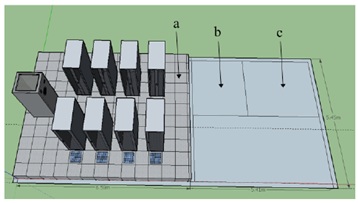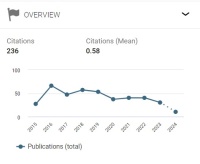Konsep Dan Penerapan Green Computing di Lingkungan Kampus
Abstract
The development of information technology to help increase activities also brings enormous progress in the world of Education, the development of information technology involves also the negative environment such as increasing the energy needs needed, which electricity needs in Indonesia Power plants use non-renewable energy as a fossil energy. To reduce energy use in the campus environment in this study using the concept of green computing. Green computing is the study and practice of environmentally sustainable computing or IT. It is expected that the application of green computing can streamline and save energy usage in the campus environment and reduce negative impacts on the environment.
Keywords — Computer, Energy Efficiency, Green computing.
Downloads
References
[2] Botho College, Green computing: Students, Campus Computing And The Environment- A Case For Botswana, Journal of Information Systems and Communication, ISSN: 0976-8742 & E-ISSN: 0976-8750, Volume 3, Issue 1, 2012.
[3] Warjiyono, Penerapan Green computing Dalam Upaya Efesiensi Sumber Daya Di Amik BSI Tegal , IJSE, Volume 2 No 1 – 2016.
[4] Novi, Alexander, Analisis Pemanfaatan Teknologi Green computing Dalam Mendukung Kinerja Manajemen Institusi Pendidikan, Jurnal Eksekutif volume 14, no. 2 desember 2017
[5] Rusdiana, Linawati, Widyantara, Green Data Center Design Of Udayana University , Majalah Ilmiah Teknologi Elektro, vol. 15, no.2, Juli –Desember 2016.
[6] Abdullahi, Ahmad, Nordin, Knowledge of Green computing among University Students and Lecturers in a Malaysian Public University. GSTF Journal on Computing (JoC) Vol.3 No.1, March 2013.
[7] Kartika, Implementasi Green computing Di Sekolah Tinggi Berbasis Teknologi Informasi Di Denpasar, Seminar Nasional Teknologi Informasi dan Multimedia 2016, ISSN : 2302-3805.
[8] Mangaonkar, Sirsat, Nahar, GREEN COMPUTING A new awakening for Campus. Proceedings of National Conference on Emerging Trends: Innovations and Challenges in IT, 19 -20, April 2013.
[9] I Putu Agus Eka Pratama. (2015). “Green computing”. Bandung : Informatika.
[10] Online https://en.wikipedia.org/wiki/Moore%27s_law diakses pada 18 April 2019.
[11] Bhujbal, Bansode, Dukale, Gaikwad. Energy Efficient Virtual Machine Placement in Data Center, International Journal of Komputer Applications (0975 – 8887). Volume 182 – No. 29, November 2018.
[12] Onlinehttps://www.snia.org/sites/default/education/tutorials/2009/spring/green/RickBauer_Building_the_Green_Data_Center.pdf diakses pada 18 April 2019.
[13] Onlinehttps://www.excellent.co.id/roductservices/vmware/keuntungan-teknologi-virtualisasi-cloud-computing/ diakses 18 April 2019.
[14] Jayadih, Mahmudin,Nurcahyadi, Strategi Penerapan Green Computing Pada Unit Pengelola Sistem Informasi Pembelajaran Berskala Kecil: Studi Kasus SMK Fadilah Tangerang Selatan. Jurnal Sisfotek Global, ISSN : 2088 – 1762 Vol. 6 No. 1 / Maret 2016.


This work is licensed under a Creative Commons Attribution-NonCommercial-NoDerivatives 4.0 International License.

This work is licensed under a Creative Commons Attribution 4.0 International License




